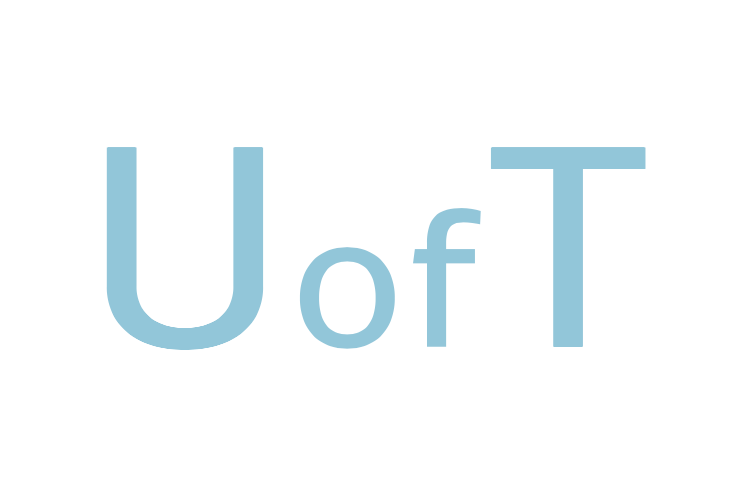UofT Resources

Graduate Wellness Package: A compilation of wellness resources, events, and initiatives for UofT graduate students.
Navi: An anonymous chat-based service that acts as a virtual assistant for students wanting to learn more about the mental health supports available to them at the University of Toronto.
University of Toronto Student Mental Health Resource: Resources for counselling and workshops available through Health and Wellness at U of T.
Student Life Mindfulness events calendar: A calendar to find wellness events like Mindfulness Moments and yoga.
Graduate students Health and Wellness Centre – Faculty of Medicine embedded Counsellors: To schedule your first appointment with a counsellor, please contact the Health and Wellness Centre at 416-978-8030 (select option “5”) ask to book a time with a Graduate Life Sciences Education (GLSE) (i.e. Faculty of Medicine) counsellor.
For University of Toronto Employees: Employee and Family Assistance Program
UofT Safety & Support: Compilation of on- or near-campus resources for crises related to mental health, personal safety, or sexual violence/harassment.
Identify, Assist, Refer Training: Online training module that provides useful tools and strategies to help peers that are experiencing mental health problems.
University of Toronto Sexual Violence Prevention and Support Centre: A support for students, staff, and faculty at the University of Toronto who have been affected by sexual violence or sexual harassment.
Build your own mental health toolkit: Many different resources can be found on UofT’s mental health portal related to mental health.
Dr. Peter McPherson (Graduate Coordinator): peter.mcpherson@utoronto.ca
Community Helplines & Resources

Gerstein Center Mental Health Crisis Line: 416-929-5200
Provides free, voluntary, and confidential crisis intervention service over the phone and in-person for adults living in the City of Toronto. Available 24 hours a day, 7 days a week.
Good2Talk Helpline: 1-866-925-5454
A free, confidential helpline providing professional counselling and information and referrals for mental health, addictions and well-being to post-secondary students in Ontario. Available 24 hours a day, 7 days a week.
Toronto Distress Centre Hotline: 416-408-HELP (4357)
Offers emotional support, crisis intervention, suicide prevention and linkage to emergency help when necessary. Available 24 hours a day, 7 days a week.
Suicide Prevention Lifeline: 1-800-273-8255
Available for phone calls to help individuals thinking of suicide or worried about a potentially suicidal loved one. Available 24 hours a day, 7 days a week. Also available from 4 PM to 12 AM EST via text at 45645.
Canada Suicide Prevention Service – 1-833-456-4566 or Text 45645
Offers highly trained responders to support to anyone worried about someone who may be having suicidal thoughts, or having suicidal thoughts themselves. Available 24 hours a day, 7 days a week.
Assaulted Women’s Helpline (416-863-0511): Provides free anonymous crisis counselling, emotional support, information and referrals via telephone to women in up to 200 languages. Available 24 hours a day, 7 days a week.
Sexual Assault & Domestic Violence Care Centre (416-323-6040): Office phone number for the Sexual Assault/Domestic Violence Care Centre at Women’s College Hospital. Can schedule appointments for medical assessment & treatment, psychological support, counselling, medical & legal evidence, and safety planning. Confidential, free, 24-hour access
Toronto Rape Crisis Centre (416-597-8808): Abuse and assault crisis line for Toronto area. Counsellors will listen; discuss coping strategies and safety plans; and can provide referrals to legal, medical, immigration, and counseling services. Confidential, free, 24-hour access
Sexual Violence Prevention and Support Centre: The Sexual Violence Prevention and Support Centre works to create a campus environment where all members of the University community can study, work and live free from sexual violence. Established as part of the University of Toronto’s Action Plan on Preventing and Responding to Sexual Violence, the Centre has locations on each campus to help students, staff and faculty who have been affected by sexual violence or sexual harassment access support, services and accommodations.
Ontario Drug and Alcohol Helpline (1-800-565-8603): Provides confidential and free info about drug and alcohol addiction services in Ontario; listens & provides strategies to meet goals; basic education about drug and alcohol addiction. Available 24 hours a day, 7 days a week.
ConnexOntario (1-866-531-2600):
Provides confidential and free Ontario health services info for people experiencing problems with alcohol and drugs, mental illness, and/or gambling. Available 24 hours a day, 7 days a week.
Ontario Problem Gambling Helpline (1-888-230-3505): Provides free information about problem gambling counselling services in Ontario and online tools for gamblers or their friends and family. Available 24 hours a day, 7 days a week.
Be Safe: A mobile app to help young adults make decisions about seeking help in crises. Allows users to create a digital safety plan, informs users about local resources, directs users to the options for their needs, and empowers users to reach out safely.
211: A database of community resources.
Anishnawbe Health Mental Health Crisis Line for Aboriginal students (1-855-242-3310): Provides 24-hour access to crisis support for First Nations and Inuit individuals in mental health crisis.
LGBTQ Youthline (1-800-268-9688): Peer support line for LGBTQ+ youth (29 and under). Provides support and referrals, training to support other youth, and resource information. Confidential, free, answered Sun-Fri 4 – PM.
Restore@UofT: A Restoration Program for Black, Indigenous and Racialized Community.
Mental Health

Graduate Student Mental Health Toolkit: Resources for graduate student mental health created by the Centre for Innovation in Campus Mental Health.
More Feet on the Ground: Online training resource created by the Centre for Innovation in Campus Mental Health that provides useful tools and strategies to help yourself and peers when experiencing mental health problems.
Check Up from the Neck Up: A simple mental health check-up to identify some symptoms of common mood disorders. Provides general information on mood disorders and resources to help yourself, family members, or friends.
eMentalHealth.ca: Search engine for local mental health resources.
Headspace: An app designed to help users incorporate mindfulness and meditation sessions into their daily lives.
Counselling

School of Graduate Studies Embedded Counsellors:
- Phone: 416-978-8030, Ext. 5
- Book an appointment for counselling by phone or walk-in at 214 College Street, Room 111
The School of Graduate Studies has Embedded Counsellors available to graduate students. These counsellors are focused on: helping students on a short term basis (~6 sessions), and connecting them with community support.
My Student Support Program (My SSP): 1-844-451-9700 or use My SSP app
This service is offered to UofT students with immediate and/or ongoing concerns. It is a confidential and 24-hour tool where students can chat with counsellors over the phone or through text. This support is available to all UofT students and can be delivered in various different languages to better support international and ESL students.
Free Walk-In Counselling Services:
- List of locations at www.utgsu.ca/insurance/walk-in-counselling/
Community walk-in counselling services available for free to everyone. There are many different locations where students can walk-in and receive counselling on the same day. These resources are good for immediate/pressing concerns.
OISE Psychology Clinic (~$25/session for graduate students):
- Email: oiseclinic@utoronto.ca
- Phone: 416-978-0620
- Location: 252 Bloor Street West, Suite 7-296
Psychological services (Psychotherapy, Counselling, and Drop-In Services) are provided by graduate students under the supervision of registered psychologists. Services are limited by the availability of psychological services students during the school year (there is more availability in the fall term). This is a better resource for short-long term use.
LinkMentalHealth.com (up to $500 in coverage with UTSGU Health & Dental insurance): This is an online tool available to anyone that can help students find and connect with a therapist of their choice tailored to their specific needs and preferences. This app also helps students connect with therapists that can help them sort out coverage and insurance policies. This is a better resource for long term use.
Other Helpful Resources

Basic health coverage:
- Canadian students: provincial health plan (e.g. OHIP in Ontario)
- International students: University Health Insurance Plan (UHIP)
Supplemental health plans – graduate student coverage:
- UTGSU Health and Dental Insurance Plan – included in your tuition fees (unless you opted out due to other coverage)
- Benefits booklet (see pg. 1 “Schedule of Benefits” for an overview of coverage, and pg. 7 “Description of Benefits” for more detail)
- Family coverage (for spouse, children) is available: visit www.studentcare.ca for current rates and applications forms
If you are a TA and work 30+ hours and are a CUPE 3902 Unit 1 member (from Sep 1 – Aug 31):
- CUPE 3902 top-up plan
- Additional resources: FAQ page
- Benefits booklet available on the Green Shield website once you log into your account
For more details, check out this detailed two-pager prepared by Alison Jee (past PGSA Co-President)